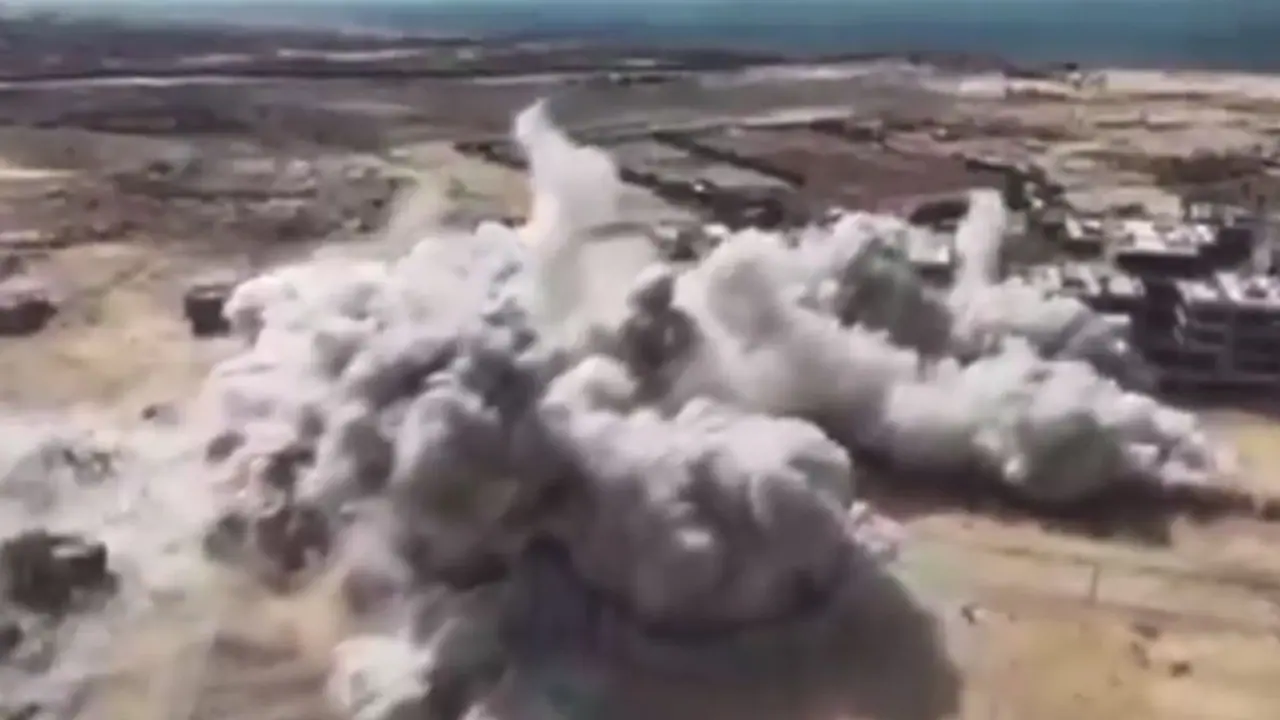Israel's military struck 75 Hezbollah targets in Lebanon, targeting weapons and infrastructure. Opposition leader Yair Lapid urges acceptance of the US-French seven-day ceasefire proposal, ensuring Hezbollah's removal from Israel's northern border.
Israel's military has launched airstrikes on approximately 75 targets associated with Hezbollah in Lebanon, targeting weapons storage facilities, ready-to-fire launchers, and terrorist infrastructure. This operation was carried out in the Bekaa and southern Lebanon areas, according to the Israeli military's Telegram channel.

"Overnight, the IDF (Israeli military)... struck approximately 75 terror targets" belonging to Hezbollah "in the area of Bekaa and in southern Lebanon, including weapons storage facilities, ready-to-fire launchers" as well as militants and other infrastructure," the military statement reads.
Meanwhile, Israel's opposition leader, Yair Lapid, has urged the government to accept the US-French proposal for a seven-day ceasefire with Hezbollah. Lapid emphasized that any ceasefire must ensure the removal of Hezbollah from Israel's northern border and allow residents to safely return home. He also warned that any violation of the ceasefire would prompt Israel to retaliate with full force.
The United States, France, and several other countries, including Qatar, Australia, Canada, and Saudi Arabia, are urging for an immediate 21-day ceasefire between Israel and Lebanon. This temporary halt in hostilities would apply to the Blue Line, the demarcation line between the two countries, and would provide a window for negotiations towards a diplomatic resolution.
UN Secretary-General Antonio Guterres emphasized the gravity of the situation, stating that "hell is breaking loose" in Lebanon and that an all-out war must be avoided at all costs. He appealed to all parties to stop the killing and destruction, tone down their rhetoric, and step back from the brink.
The joint statement released by the White House calls on Israel and Lebanon to endorse the temporary ceasefire immediately. This development comes after intense discussions at the United Nations, highlighting the international community's growing concern over the escalating conflict
However, community leaders in northern Israel opposed the ceasefire plan, believing it would lead to another attack similar to the October 7 incident. Amir Sofer, chairman of the Upper Galilee regional council, stated, "This is a time for war, not negotiations." David Azulai, Metula regional council chairman, echoed this sentiment, saying that a ceasefire would be equivalent to the Hamas situation in the south, and that the government would be responsible for the next attack if a deal is made.
The conflict has sparked concerns about the humanitarian situation in Gaza and the need for a peaceful resolution. Some argue that a ceasefire would enable a broader discussion on security arrangements and addressing root causes of terrorism, while others emphasize the importance of distinguishing between Hamas and the Palestinian struggle for self-determination. The situation remains tense, with differing opinions on the best course of action to ensure stability and security in the region.
